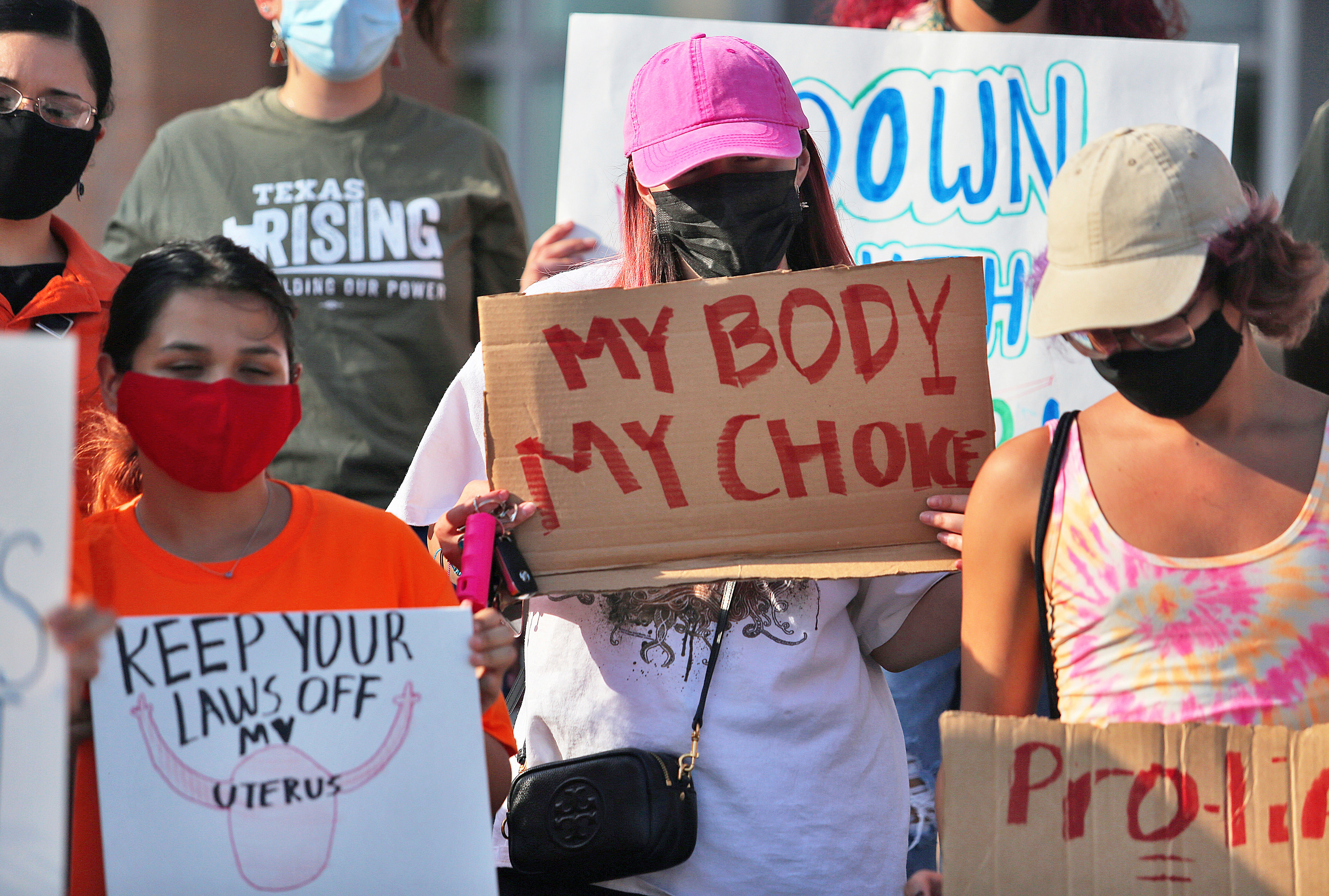My birth mother didn’t get the option of abortion. That’s why I stand against the Texas ban
Like many adoptees before me, one of the first questions I asked my birth mother after an investigator helped me locate her was why she placed me, and why she placed my siblings. My heart filled with pain as I tried to come up with an excuse that would justify why a woman, a mother, would keep one child and then place three others in the arms of strangers


Your support helps us to tell the story
From reproductive rights to climate change to Big Tech, The Independent is on the ground when the story is developing. Whether it's investigating the financials of Elon Musk's pro-Trump PAC or producing our latest documentary, 'The A Word', which shines a light on the American women fighting for reproductive rights, we know how important it is to parse out the facts from the messaging.
At such a critical moment in US history, we need reporters on the ground. Your donation allows us to keep sending journalists to speak to both sides of the story.
The Independent is trusted by Americans across the entire political spectrum. And unlike many other quality news outlets, we choose not to lock Americans out of our reporting and analysis with paywalls. We believe quality journalism should be available to everyone, paid for by those who can afford it.
Your support makes all the difference.My birth mother lives in a country that banned abortion for any reason until 2006. She placed three children for adoption as a result, and I am adamantly pro-choice. Watching the Texas ban unfold this week, I felt like my emotions were going haywire.
My American immigrant parents adopted me from Colombia when I was just five months old. I am the product of a country that decided the life of a fetus was more important than the life of the woman that is tasked with carrying it while men walk away carelessly. In 2006, a ruling finally allowed women to terminate pregnancies in cases of rape, incest, abnormality, and danger to the physical and mental health of the mother. But before that, women like my birth mother were subjected to a ban that criminalized abortion in all circumstances and were left with very few choices.
Like many adoptees before me, one of the first questions I asked my birth mother after an investigator helped me locate her was why she placed me, and why she placed my siblings. My heart filled with pain as I tried to come up with an excuse that would justify why a woman, a mother, would keep one child and then place three others in the arms of strangers. Her sobs filled the void on the staticky line that connected me, her, and a fellow adoptee who offered to translate the call.
I wish that her story was different, an anomaly. Instead, the reality is that there were and still are many women like my first mother who were entrenched in poverty from the moment they came into this world, left alone or with partners, and unable to climb a social ladder that kicked them down no matter how hard they worked. At fifteen, she had already been kicked out of her mother’s home. She was soon pregnant and working as a maid. She tried her best, but, unlike the fairytales, there was no prince to save her, no silver lining. When she found herself pregnant again and out of a job, she was left with only one realistic option: adoption.
While many think of adoption as a beautiful sacrifice with a happy ending for everyone involved, the truth is much more complicated. And while adoption is often used as the solution in pro-life arguments, it’s important to listen to the voices of those who have actually been affected by it.
Adoption, particularly international adoption, is a very lucrative business where it’s not unusual for adoptive parents to pay between $20,000 and $50,000 per child. And while adoption agencies preach of saving children in need, they often make millions of dollars while birth mothers like mine are dumped like recycled bottles, unwanted until they can be used again.
When I look at Texas’ ban on abortion, I do not see a government working in the best interests of life. I see a government that is trying to lock down and eliminate the choice of a pregnant person in crisis. Women in need are not left with the option of life; instead, they are handed down a sentence of grief as their safe options are taken away. The truth is that women who are faced with unwanted pregnancies are unlikely to choose adoption anyway.
I am pro-choice because of women like my mother, who are subjected to the empty promises of ideologically driven governments willing to step in when the child is in their womb but who disappear days after birth. Adoption is not an equal option to abortion; its physical and emotional ramifications are vastly more pronounced. And while adoption is a business for so many in America, it will never be fair. In many ways, it becomes a way to filter the poor out of parenthood while using their wombs for cash.
Melissa Guida-Richards is an international transracial adoptee and author of ‘What White Parents Should Know about Transracial Adoption’; she is also working on a memoir
Join our commenting forum
Join thought-provoking conversations, follow other Independent readers and see their replies
Comments